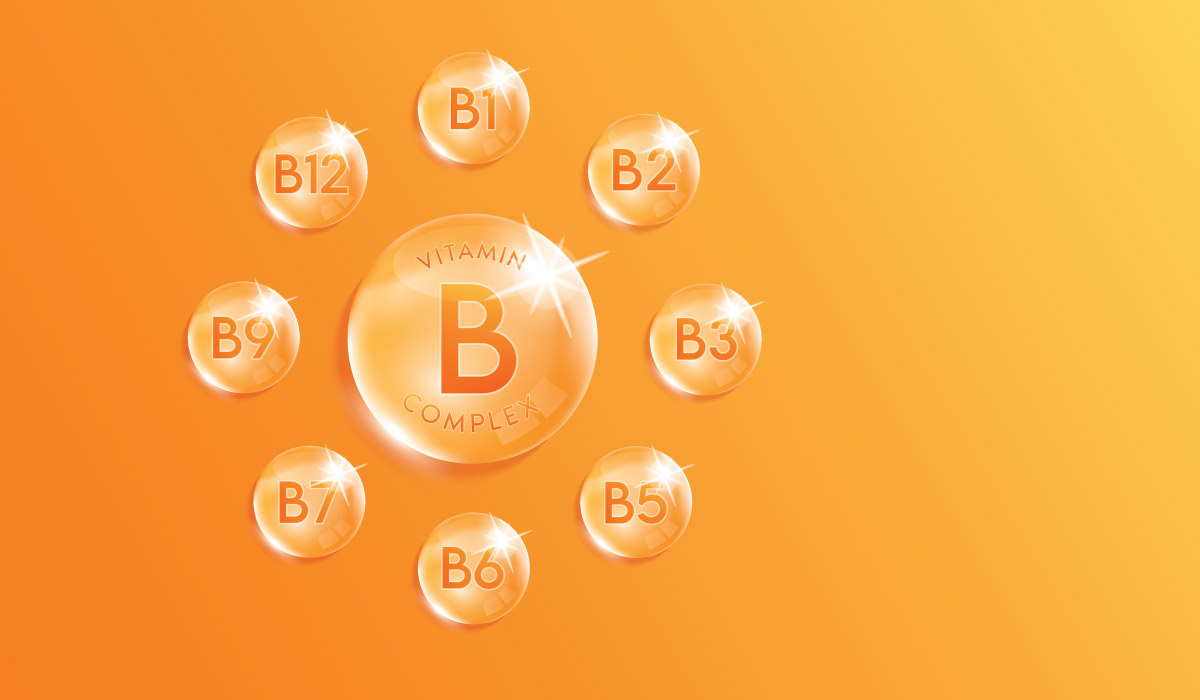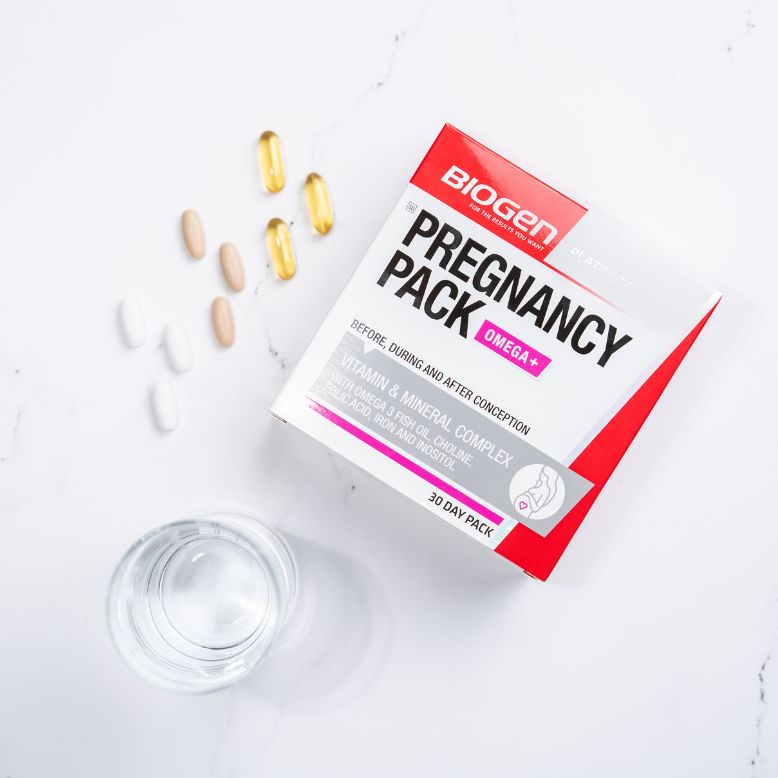
In our fast-paced modern lives, finding ways to sustain our energy levels and manage stress can help support our mental and physical performance
While multiple factors contribute to optimal energy production and our body’s ability to cope with stress, nutrition remains the cornerstone in building resilience in the face of life’s daily demands.
The benefits from ‘B vitamins’
A wholesome and nutritious diet provides the various macro- and micronutrients our body needs to produce energy while supporting the immune system to keep the physiological effects of stress in all its forms – physical, psychological, emotional, lifestyle and environmental – in check.
Among the broad range of nutrients our bodies need, B complex vitamins play a particularly important role in supporting energy production and stress management2. The B-group vitamins include:
- Vitamin B1 (Thiamin)
- Vitamin B2 (Riboflavin)
- Vitamin B3 (Niacin)
- Vitamin B5 (Pantothenic acid)
- Vitamin B6 (Pyridoxine)
- Vitamin B7 (Biotin)
- Vitamin B9 (Folic acid)
- Vitamin B10 (Para-amino benzoic acid, or PABA)
- Vitamin B12 (Cobalamin)
B complex vitamins are indispensable nutrients that act as coenzymes in energy metabolism1 and support the body in coping with stress2. Their involvement in converting food into energy, synthesizing neurotransmitters3, and aiding adrenal function3 makes them essential for overall vitality and well-being.
Support energy production
These water-soluble vitamins are essential coenzymes involved in numerous metabolic pathways, particularly in the production and utilisation of energy from the carbohydrates, proteins and fats we consume. The primary B vitamins contributing to energy production include:
Stress Management Role
B complex vitamins help our bodies manage stress through multiple mechanisms2, with various B vitamins playing key roles in the body’s stress response:
Normal methylation and homocysteine metabolism
Methylation is a vital biochemical process that plays a crucial role in various physiological functions, including DNA synthesis, gene expression, neurotransmitter production, detoxification, and the metabolism of hormones and neurotransmitters.
These methylation reactions produce an amino acid called homocysteine. Under normal circumstances, the body can rapidly metabolise homocysteine to keep levels in balance, which is important as elevated levels in the blood (known as hyperhomocysteinemia) may cause various health issues, including cardiovascular diseases, neurological disorders, and pregnancy complications.
In this regard, ensuring an adequate intake of B complex vitamins3, particularly B6, B9 and B12, is essential for proper methylation and homocysteine metabolism as these vitamins act as Co-Enzymes in the biochemical reactions involved.
Cover your Vitamin-B bases
Incorporating a balanced diet rich in B complex vitamins is key to feeling more energised and fostering a more stress-resilient you.
You can find B vitamins in various foods, including animal sources such as meat, fish, poultry, dairy and eggs, as well as plant sources such as grains, seeds, legumes, nuts, yeast, leafy green vegetables, mushrooms, cauliflower, and citrus fruits.
You can also give your body a B complex boost with a comprehensive supplement like new Biogen Supreme B Complex, which contains all the major B-group vitamins along with choline for nervous system support4, and inositol to support energy production and normal methylation and homocysteine metabolism for cardiovascular support5.
Added Panax Ginseng (500 mg per serving) offers additional support for brain function and enhanced physical capacity6.
Biogen Supreme B Complex offers activated absorption of these water-soluble vitamins to improve bioavailability and improve utilisation in the body.
Always consult your doctor to address any potential vitamin or mineral deficiencies, who will recommend the most suitable and effective treatment approach.
Article References:
- Mary Hanna, Ecler Jaqua, et al. B Vitamins: Functions and Uses in Medicine. Perm J. 2022; 26(2): 89–97. Published online 2022 Jun 17. doi: 10.7812/TPP/21.204
- Lauren M Young, Andrew Pipingas, et al. A Systematic Review and Meta-Analysis of B Vitamin Supplementation on Depressive Symptoms, Anxiety, and Stress: Effects on Healthy and ‘At-Risk’ Individuals. Nutrients. 2019 Sep; 11(9): 2232. Published online 2019 Sep 16. doi: 10.3390/nu11092232
- David O. Kennedy. B Vitamins and the Brain: Mechanisms, Dose and Efficacy—A Review. Nutrients. 2016 Feb; 8(2): 68. Published online 2016 Jan 28. doi: 10.3390/nu8020068
- Emma Derbyshire, Rima Obeid. Choline, Neurological Development and Brain Function: A Systematic Review Focusing on the First 1000 Days. Nutrients. 2020 Jun; 12(6): 1731. Published online 2020 Jun 10. doi: 10.3390/nu12061731
- Role of homocysteine in the development of cardiovascular disease. Paul Ganguly, Sreyoshi Fatima Alam. Nutr J. 2015; 14: 6. Published online 2015 Jan 10. doi: 10.1186/1475-2891-14-6
- Hoang Viet Bach, Jeongseon Kim, et al. Efficacy of Ginseng Supplements on Fatigue and Physical Performance: a Meta-analysis. J Korean Med Sci. 2016 Dec; 31(12): 1879–1886. Published online 2016 Oct 10. doi: 10.3346/jkms.2016.31.12.1879










